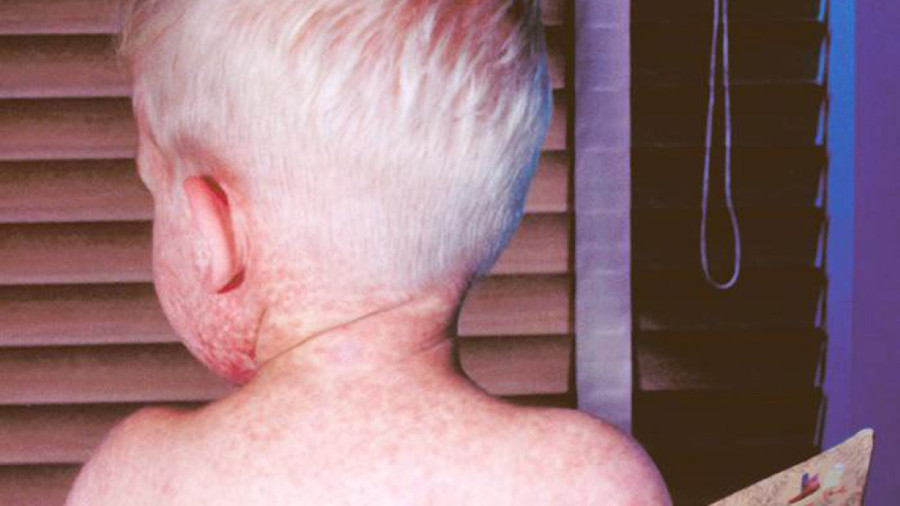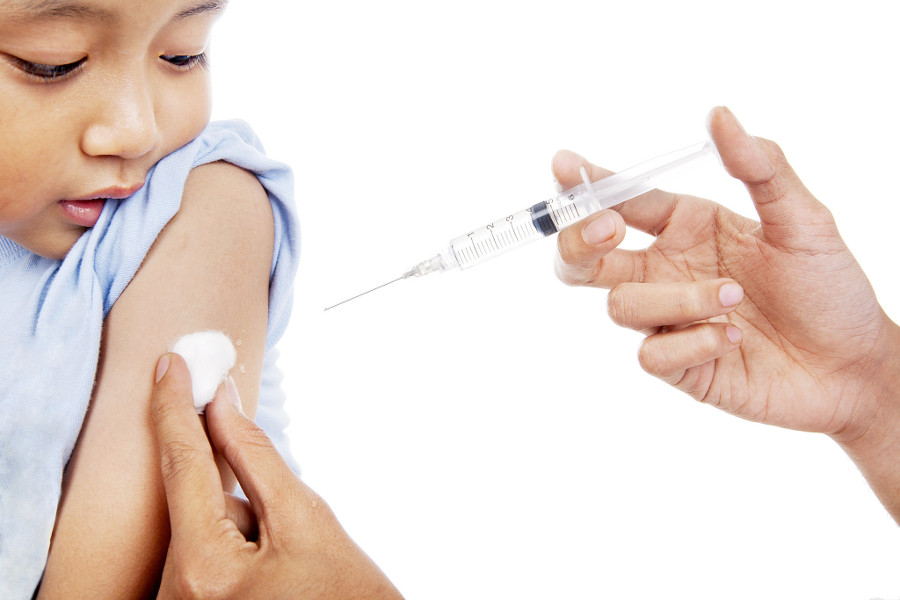The World Health Organization (WHO) warned this Tuesday that measles is continuing to spread and kill people in Europe. WHO has recorded 35 measles-related deaths in the past 12 months, while thousands of cases have been reported around the continent.
The most recent fatality was a six-year-old boy from Italy. Just in Italy alone, two deaths and more than 3,300 cases have occurred since June last year.

Romania has seen the most deaths, as the death toll has risen to 31, while Germany and Portugal have seen one death each. However, several European countries have also reported the measles outbreak, and health officials are urging people to get vaccinated against the disease.
Measles outbreak in Europe has claimed 35 lives so far
Dr. Zsuzsanna Jakab, WHO Regional Director for Europe, said that every death or disability caused by measles, which as a vaccine-preventable disease, is an unacceptable tragedy.
“We are very concerned that although a safe, effective and affordable vaccine is available, measles remains a leading cause of death among children worldwide, and unfortunately Europe is not spared,” said Jakab in a statement published on WHO’s website. “Working closely with health authorities in all European affected countries is our priority to control the outbreaks and maintain high vaccination coverage for all sections of the population.”
Jakab also urged all European countries to take urgent measures to stop transmission measles within their borders and noted that countries that have already achieved this should keep up their guard and sustain high immunization coverage.
Since the measles epidemic began in Europe, lawmakers around the continent are tightening their laws on vaccination. In recent years, Europe has seen a decline in immunization, which subsequently has led to a spike in diseases like chicken pox, measles, and mumps, according to the European Centre for Disease Prevention and Control.
Italy recently announced that vaccination will be mandatory for all schoolchildren. In fact, the legislation states that children must be vaccinated against 12 common diseases before they can enroll in state-run schools.
Italian Prime Minister Paolo Gentiloni has blamed a decrease in measles vaccinations in part because of a spread on anti-scientific theories. Some anti-vaccination groups have been campaigning to get rid of vaccines, as they claim the measles vaccine can give autism to children, despite the fact that several studies have said that’s neither true nor possible.
WHO recommends that children receive two doses of the measles vaccine
According to WHO, Europe has been progressing towards measles elimination. WHO stated that 37 countries had interrupted endemic transmission, according to the Regional Verification Commission for Measles and Rubella Elimination, which based on data from 2015 to report that.
But the disease is still spreading among people who choose not to receive the vaccination, people who don’t’ have equitable access to vaccines or those that because of underlying health conditions, cannot be vaccinated.
The WHO said that in response to the epidemic, several countries are taking extra measures, such as school-entry checks and increasing coverage rates for routine vaccinations against measles and other common diseases.

“WHO recommends that every eligible child receives 2 doses of measles-containing vaccine,” said WHO in its statement. “It also encourages adults who are not fully immunized, or who are not sure of their immunity status, to get vaccinated.”
Romania recently conducted a nationwide campaign of immunization, while Italy adopted outbreak control measures such as notifying suspected cases, tracing contacts of these cases, and providing post-exposure prophylaxis and vaccination.
Measles is an extremely contagious –but preventable- disease
Germany is also tightening its laws, as lawmakers are contemplating fining parents who don’t vaccinate their children. Parents who fail to vaccinate their kids against measles could pay up to EUR 2,500 ($2,800).
German legislators decided to push the law after a 37-year-old mother of three died of measles in Essen. Under the legislation, kindergartens or daycare centers would have the power to expel children who aren’t vaccinated. As of May, Germany had reported more than 400 measles cases, more than the 325 cases that were reported last year.
Measles is a highly contagious disease that can be spread by direct contact and through the air by sneezes or coughs. The virus can survive on infected surfaces for up to two hours, and first symptoms of the disease are commonly a high fever and cold-like symptoms like a runny nose.
Another way to identify the disease is from the small white spots inside the cheeks of those infected. If by then the disease hasn’t been treated, a rash will develop on the face and neck before it spreads across the body.
There is no treatment for measles, but two doses of the MMR (measles, mumps, and rubella) vaccine can prevent infection in the first place. In the United States, laws have also been tightened and several states demand that school children are vaccinated against measles, mumps, and rubella. The American Academy of Pediatrics estimates that nine out of ten American families follow their vaccine schedule.
Source: World Health Organization
